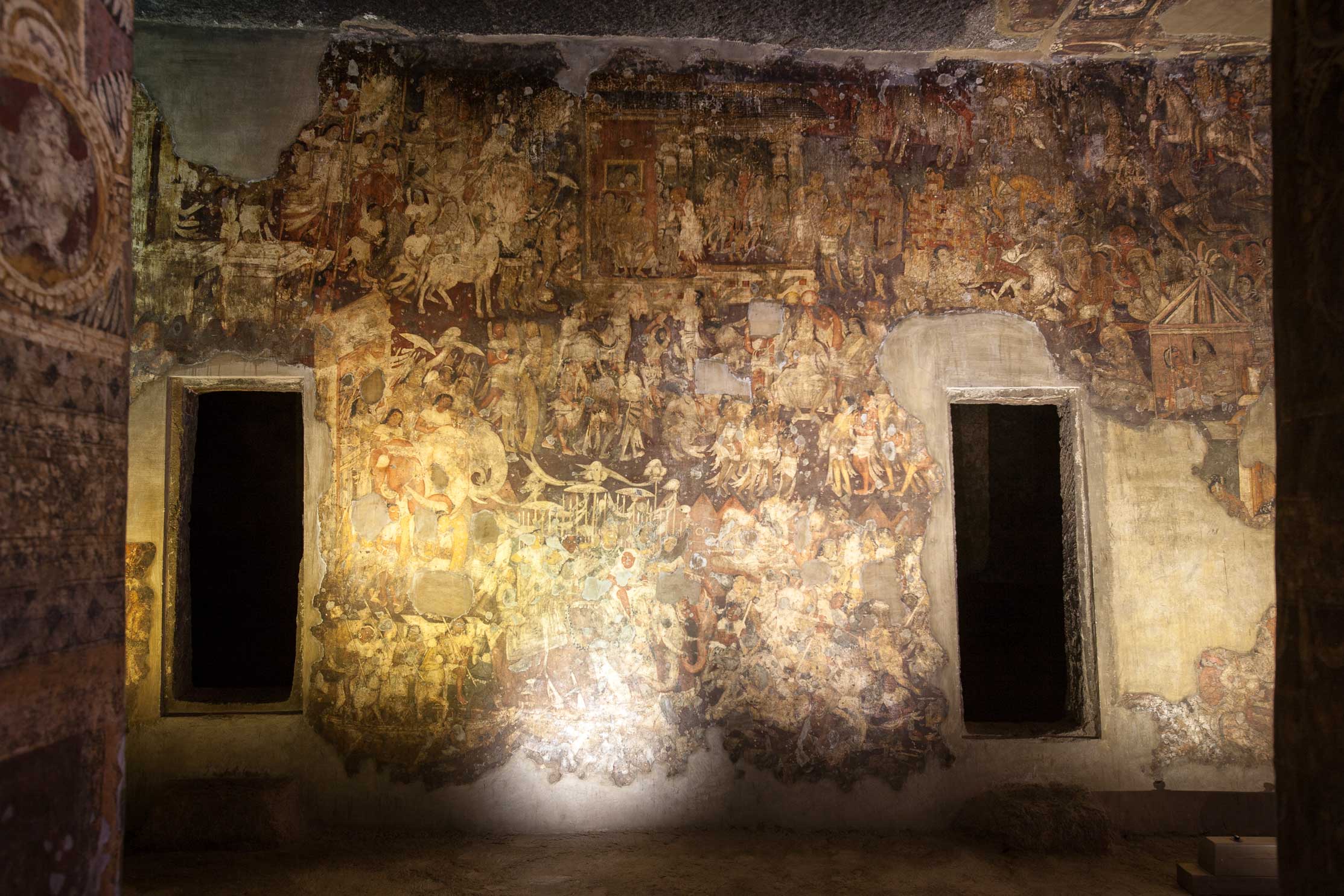Cave No. 17
Identification: Foucher (1921, narrative no. 19).—
The rich merchant, Siṃhala, went on a voyage along with a group of merchants. They were shipwrecked and found refuge in an island, keeping afloat by various means. Here they were charmed by beautiful women, who married them and kept them happy. The only hitch was that they were forbidden to go to the south of the island. They lived in pleasure for a while. However, hounded by curiosity, Siṃhala slipped away southwards one night. It turned out there was an iron tower with captive wailing men, who were also shipwrecked merchants. They too were taken by the beauties (who were really man-eating rākṣasis or demonesses) till the new batch of shipwrecked people was ushered in. Then, some of them were devoured and others were kept in the tower, meant to be eaten later. The men saw no hope for themselves but
told Siṃhala that he and his accomplice could escape by going to north on a certain day, where a winged horse would come, and would fly them to India safely. The next morning, Siṃhala gathered the others, told them about his experience, and following the prisoners’ advice, found the winged horse on the north shore. They bowed and requested the horse to rescue them. The horse asked them to mount or cling to him and rose in the air. The women, however, caught them in the act. They used emotional blackmailing tactics and showed them their children. All of the men were beguiled and jumped down and were immediately devoured by rākṣasis, but Siṃhala alone, unperturbed, fled to safety. His rākṣasi wife, however, was encouraged by other rākṣasis to devour him. In her alluring best, and with a child exactly like Siṃhala, she went to his door and told everyone that she was a
princess, abandoned by him. People, on hearing the story, asked Siṃhala’s parents to accept her, but since they were well-informed by Siṃhala about her real form, were unmoved. Having failed, the rākṣasi went to the king, who was completely taken up by her charm. In spite of warnings from Siṃhala, the king made sure that she was accepted in the royal quarters. One night, the rākṣasi called all her companions and devoured the entire royal household. The next day, when the royal gates remained closed and the palace was encircled by vultures, the citizens summoned Siṃhala, who knew what had happened. He climbed over the palace wall, slaying the rākṣasis with a sword. As the palace gates opened, people saw that their king and his family had been killed.
On public demand, Siṃhala agreed to become the new king on the condition that he would be given far-reaching powers. Soon, with a highly-equipped army he attacked the island of the rākṣasis, who battled with full force, but ultimately lost to the superior archers of Siṃhala’s army. The demonesses were granted mercy only on the condition that they would leave the island and settle elsewhere.— Siṃhala, the merchant turned king, was none other than the Buddha in a former existence.
—Source: Singh 2019, 31-33; cf. Schlingloff 2013, I, 267-268








